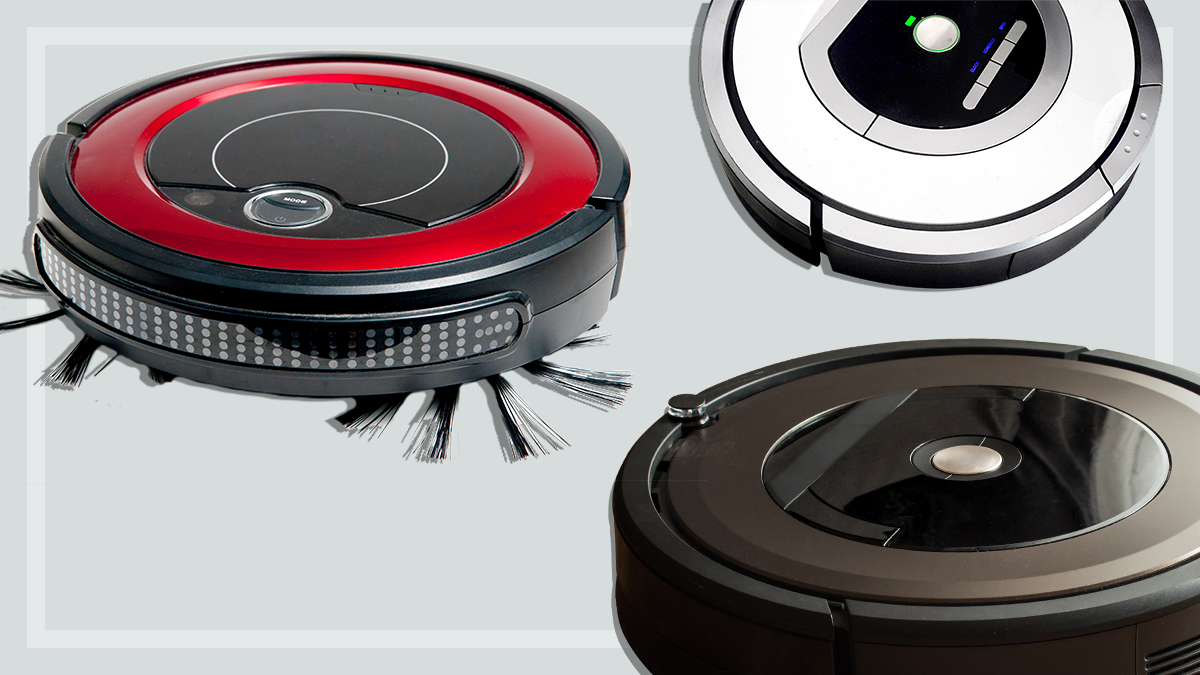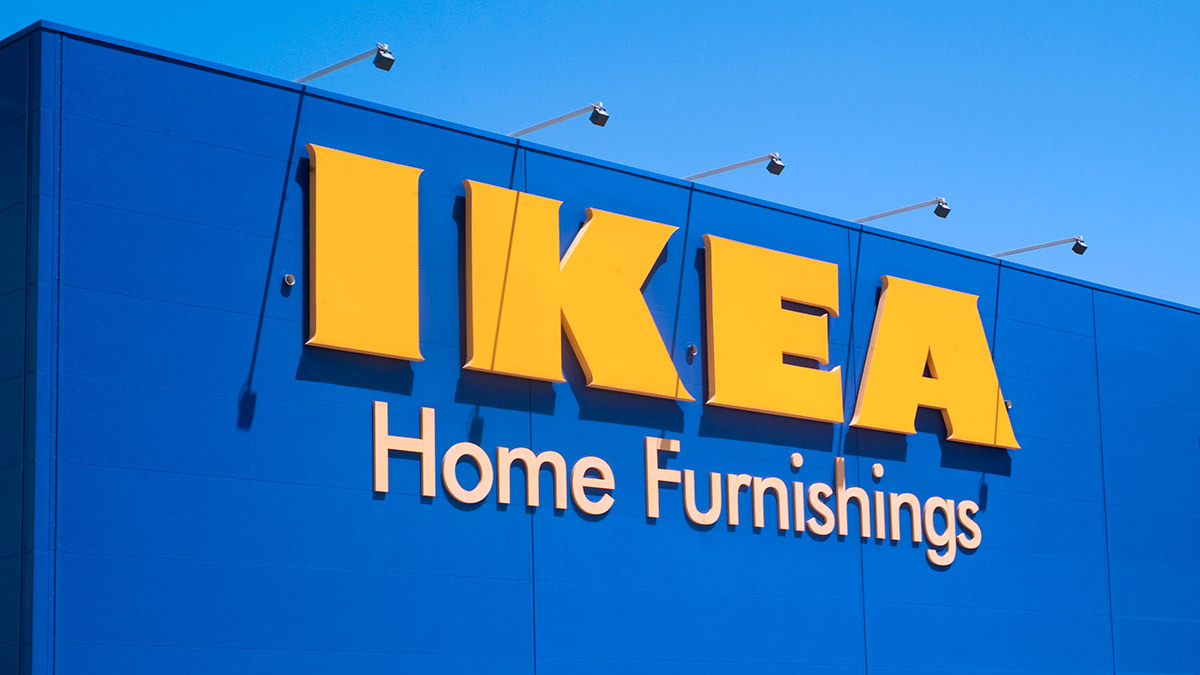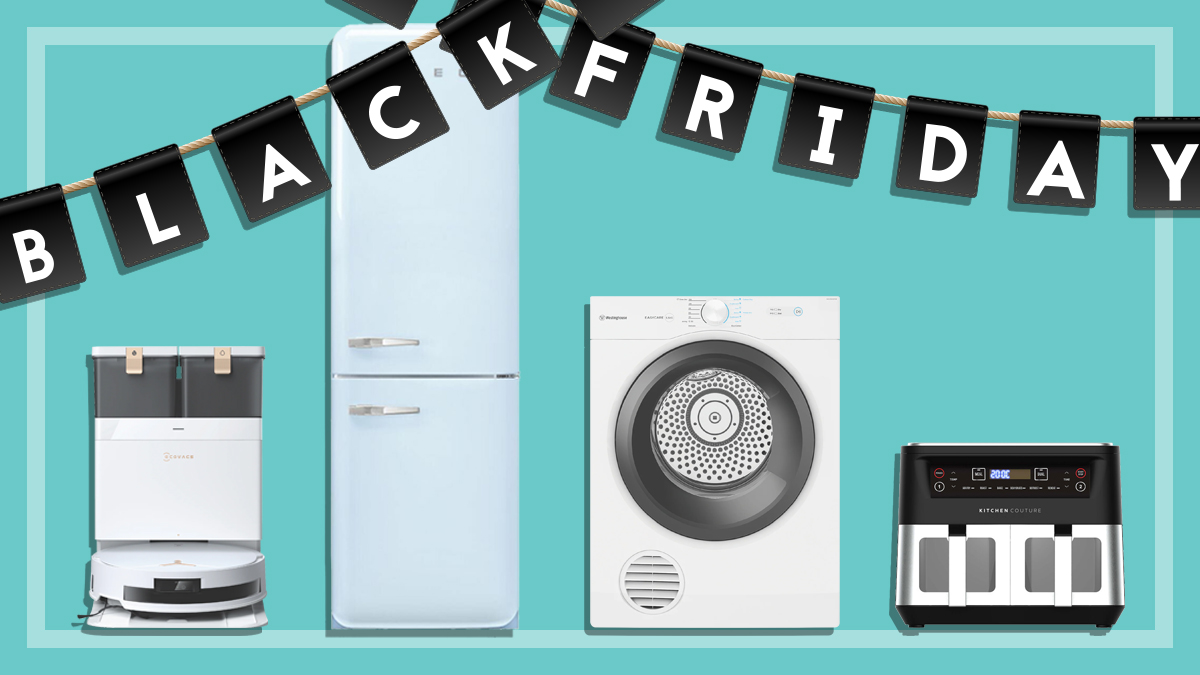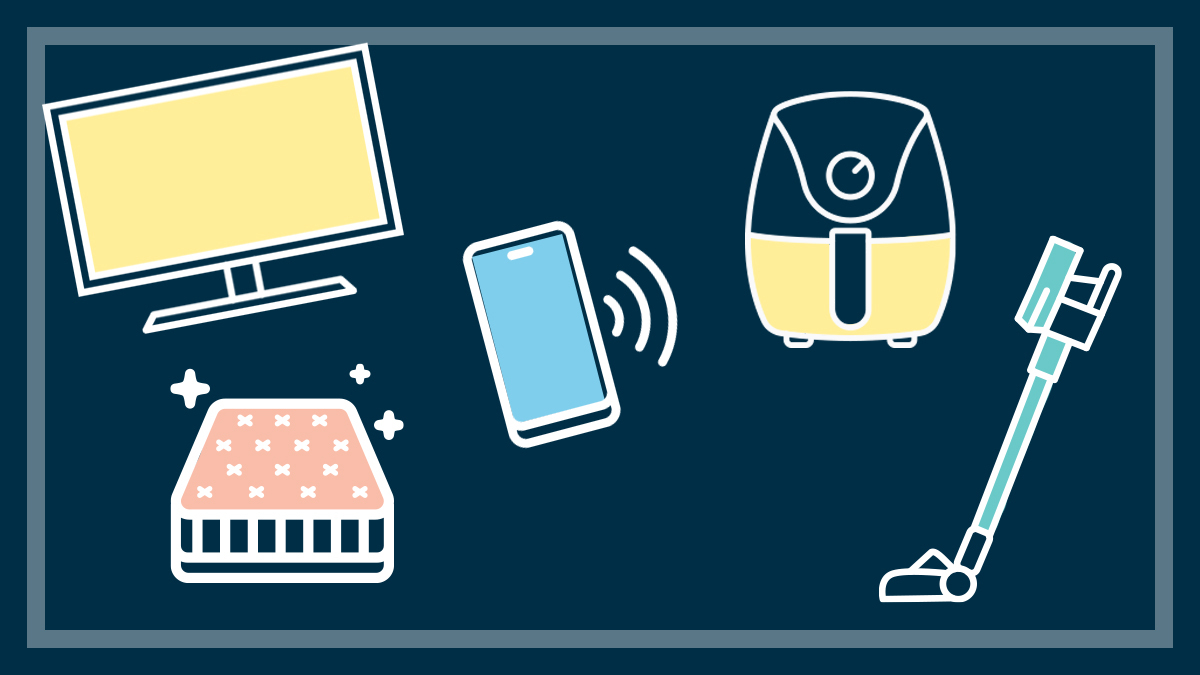Get our independent lab tests, expert reviews and honest advice.
Australia’s appliance shortage – why is it happening and how long will it last?

Need to know
- Disruptions to the supply chain due to the COVID-19 pandemic have led to appliance shortages.
- Increased demand and reduced stock means shoppers shouldn't expect to see any great discounts during sale periods
- If you do find the model you want and it's in your budget, buy it instead of waiting for it to go on sale
On this page:
- How bad is the appliance shortage?
- What's causing the shortage?
- Higher prices, longer waiting times and difficulty finding products
- Can you still expect discounted appliances in the end-of-year sales?
- Advice for buying appliances during the shortage
At CHOICE, we know better than anyone that when it comes to buying a new appliance, not just any model will do. But in recent months, consumers across the nation (and our CHOICE in-house buying team) have been reporting issues tracking down the model they want.
CHOICE buyer Sonja Scodeller says that she hasn’t just had issues sourcing products, she’s also had difficulty getting clear information from retailers.
“The retailers are telling us that manufacturers don’t have clear ETAs for when stock will arrive, or they give vague estimates that are months away and subject to change anyway.”
She says consumers also need to be careful when appliance shopping online.
“The website might say the product is in stock, but then a week after you order you’ll get an email saying it’s no longer available or on back order.
“Or the website might say ‘order now’, but in the small print it says the product won’t actually ship until a much later date – sometimes even months later.”
So how serious are these shortages and what is causing them?
How bad is the appliance shortage?
There’s been plenty of talk of product shortages in 2020 since the COVID-19 pandemic reached Australia. There’s also been some notable instances of panic buying, driven by consumer fear that certain products would soon become completely unavailable.
But according to Dr Flavio Macau, a senior lecturer in supply chain management and global logistics, there’s no need to panic. He says that while Australia is in the midst of an appliance shortage, it’s not a severe one.
“You may not be able to find the exact model you want at the price you’d like to pay, but you will be able to buy any appliance you need,” he says. “You may just need to compromise on the colour, size, brand or price a little.”
Scodeller agrees, “It’s not that you can’t buy the item at all, it’s that you often can’t buy the exact model you want. To the average consumer, it’s not going to be catastrophic.”
It’s not that you can’t buy the item at all, it’s that you often can’t buy the exact model you want
Sonja Scodeller, CHOICE buyer
And while fridges and freezers were the focus of attention earlier in the year when COVID-19 lock-downs were coming into effect across Australia, Macau says there is now no particular appliance that is in shorter supply than others.
“Now that the initial panic buying has subsided, we’re seeing modest shortages across almost all product types, so there is no one appliance that will be particularly affected.”
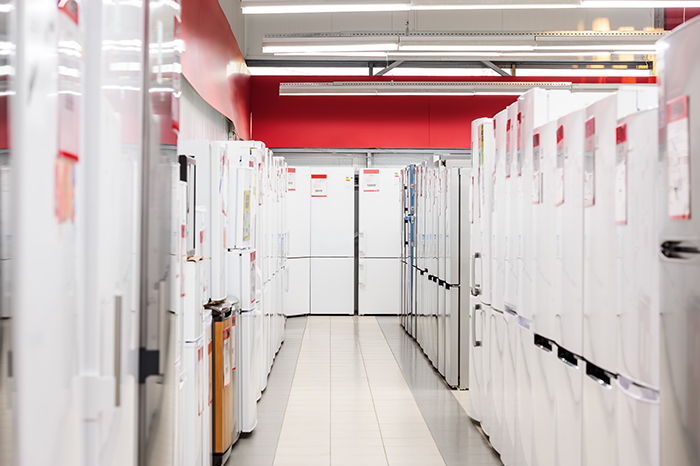
What’s causing the shortage?
Almost all the appliances sold in Australia are manufactured overseas and shipped here, a process which under normal circumstances can take a few months.
Macau says that the current shortages in Australian stores are mainly caused by disruptions to the supply chain due to the COVID-19 pandemic.
“Appliances usually have a very predictable demand, so the supply chain is very slow moving,” he says. “If something disrupts the supply chain today, the impacts won’t be seen in Australia until months later.
“When the COVID-19 pandemic first hit at the start of 2020, factories shut down and transportation slowed. Now, months later we are seeing the impact on stock levels in Australia.”
Almost all the appliances sold in Australia are manufactured overseas
And he says that Australia will likely continue to experience stock shortages for the foreseeable future.
“In many countries, especially across South East Asia where most of our appliances are manufactured, a second wave is causing further factory slowdowns, putting a continuing strain on supply chains that will have knock-on effects months down the line.”
And while much of China is now back to business, Macau says that factories are still experiencing delays due to issues sourcing parts.
“People think that China is just one place, but it is a very large country with complex supply networking. Maybe the city that is manufacturing fridges is doing fine, but there is an important [fridge] part that is made in another city that is in lockdown – this can cause major delays in manufacturing.”
Other issues contributing to delays
While most of the reasons for the current appliance shortage are pandemic-related, Macau says there are some other factors slowing down appliance supply chains.
“This year the La Niña weather system will mean we can expect to see more floods and typhoons in Southeast Asia, which can disrupt supply chains,” he says.
“Here in Australia we had a wharfie union strike in September at a shipping port in Sydney, which is still having knock-on effects on stock levels in store.”
Is demand for appliances increasing?
At the same time that appliance stock levels started to drop due to supply chain issues, demand began to surge as the COVID-19 pandemic reached Australian shores.
LG’s senior marketing manager Brad Reed, says that the categories most impacted by this initial surge in consumer demand included refrigeration, microwaves and selected laundry products.
“This was driven by some elements of urgent buying when COVID-19 first presented and the broader trend of people investing in their kitchen and laundry areas in the home,” he says.
Demand for kitchen and laundry appliances remains high even though the initial panic buying has subsided
And even as public health measures have eased, Reed says demand for kitchen and laundry appliances remains high.
According to Macau, there are two main reasons why demand for appliances has remained elevated, even though the initial panic buying has now subsided.
“Firstly, people are not allowed to travel overseas at the moment, so they may choose to channel those extra funds into upgrading their kitchen, leading to more appliance purchases.
Secondly, interest rates are at an all-time low, which may encourage people to buy big ticket appliances on finance plans.”
German-owned appliance manufacturer Miele says it has experienced increased demand across most of its domestic appliance categories.
“Compared to last year, coffee machines, vacuum cleaners and washing machines have been the biggest winners.
Even the lockdown in Victoria had only a very limited impact on consumer demand, with an increasing number of consumers conducting their purchase transactions online.”
Higher prices, longer waiting times and difficulty finding products
Consumers across the nation have been reporting issues tracking down and securing a range of household appliances.
“Oh my gosh, buying an oven was a nightmare! We ended up having to pay a good $500 more just to get one they had in stock. Everything else was “special order” with at least a month’s wait.” – Leah, South Lake, Western Australia
“We had to go to multiple stores to find [the dishwasher] we wanted and then we had to wait a couple of weeks for delivery.” – Emma-Loiuse, Adelaide Hills, South Australia
“During COVID we started renovating our kitchen and it’s been about a three-month wait for an oven/rangehood (still waiting)!” – Clare, Perth, Western Australia
“We have been trying to buy the fridge we want for about 12 weeks. Everywhere is sold out and no expected date of delivery.” – Caitlin, Melbourne, Victoria
Can you still expect discounted appliances in the end-of-year sales?
If you’ve been putting off an appliance purchase in anticipation of bagging a bargain in the boxing day sales, you’re probably going to be disappointed this year.
Overall, you’ll likely be paying more for the same product than you would have last year
Macau says increased demand combined with reduced stock levels means shoppers shouldn’t expect to see any great discounts. “You won’t be getting a significant discount this year and, overall, you’ll likely be paying more for the same product than you would have last year.”
What does the future look like?
The question is not so much when will things go back to normal, as what does the new normal look like? Due to ongoing supply chain issues, appliance shortages are set to continue, and customers are also likely to be paying more, but Macau says there are legitimate reasons for the higher prices.
“Almost all appliances sold in Australia are imported from overseas and the value of the Australian dollar is expected to go down, while costs for things like transport and warehousing are going up.
The result is that prices for appliances are likely to stay higher than usual for the foreseeable future.”
If they have their heart set on a specific model they are going to pay more and wait longer to secure it
Dr Flavio Macau, senior lecturer in supply chain management and global logistics
He says that customers are going to have to be more flexible and adaptable when it comes to buying appliances.
“There’re going to be fewer choices and longer waiting times. Customers are going to have to make compromises on either the price, brand or specifications of the product. If they have their heart set on a specific model they are going to pay more and wait longer to secure it.”
Advice for buying appliances during the shortage
If you’re just looking to upgrade your appliance, it might be worth holding out another year or so, in the hope that stock levels (and prices) return to normal. But if you need a new appliance now, here’s some tips from CHOICE experts.
Don’t hesitate
Stock is being snapped up by eager shoppers, and there’s no guarantee a sold-out product will be restocked. Scodeller’s advice to consumers is if you can find it, buy it. “Don’t wait for it to come on sale, because the chances are it will sell out and you will miss out. If you see something you want and it’s in your budget, just buy it.”
Be flexible
CHOICE Whitegoods Content Producer Ashley Iredale says shoppers might need to expand the list of options they will consider. “That could be as simple as considering different colours, but maybe also different models or brands,” he says. “You can even go further and consider factory seconds or floor stock to open up your options.”
Buy second-hand products
Iredale suggests looking at second-hand appliance dealers as well as online marketplaces. “Look for bargains around university towns, as student populations may be more transient, looking to get rid of their appliances when they move.”
Repair instead of replace
While your first thought when an appliance breaks down may be to simply replace it, Iredale says repair can be an eco-friendly, cost effective option that saves you the trouble of trawling the shops for a replacement.
Shop by brand
If you can’t find the exact model you’re looking for, go with a trusted brand instead. If you’re a CHOICE member you can use our brand reliability results to see which brands are your best bet for specific appliances.

